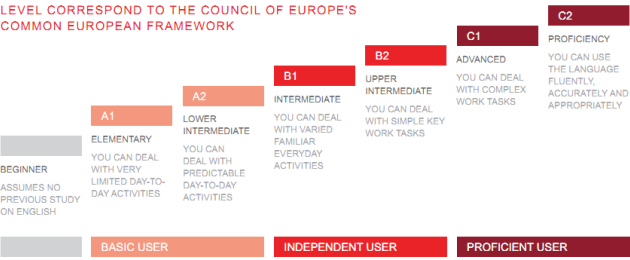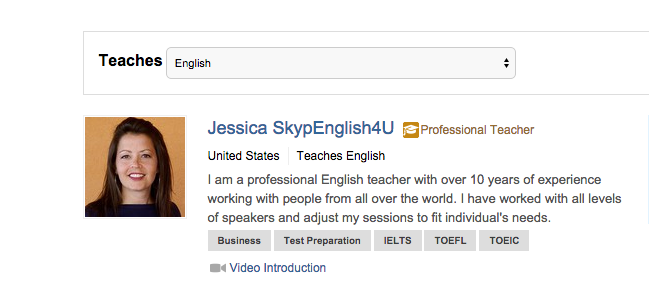“I Want To Improve My English”
“I want to improve my English” is something I have heard thousands of times since I started teaching online. My response, “Just do it”.
Learning a new language requires a lot of work and dedication. It takes willpower to make the choice to spend time on improving the language instead of doing something else (that may be more fun). Since I am an English teacher, I’m going to focus on that language, but this advice can be applied to learning any language and maybe even other areas of your life that you would like to make a change.
Are you ready for this?
It is very easy for us to say that we want to make a change, but actually doing it is another thing. People often make statements that they want to do something and at the time they may have full intentions of doing so, but they haven’t really put thought into what the change means for them.
From my experience, the main obstacle for learning English is time. It takes a lot of time to learn a new language and this is a long-term process, so it needs to be well thought out. When students and I discuss their history with English, many tell me that they have learned ‘on and off’ for years. I think people get discouraged along the way because of lack of focus or feelings of being overwhelmed by the time it takes.
Ask yourself, “Why do I want to improve my English?” Personal motivation is key in a process such as this. Be honest with yourself about the commitment and if you are really ready to do this.
Make a plan
You have decided to take this journey, so now what? Set a goal. Simply “I want to improve my English” is not what I am talking about. In fact, set a few goals, milestones along the way that you want to reach. I can help you with these based on your level.
As with diets or fitness equipment- you will see lots of advertisements for QUICK results and gimmicks like “Learn English FAST”. I believe it is the same process as it is with living a healthy lifestyle, the change will not happen overnight. There is no magic solution to improve your English fast.
For a beginner, the first goal could be to speak with a native speaker for 5 minutes. Nothing crazy, just something that is beyond the point you are at now. Perhaps it could be to send me a voice recording on Snapchat! These goals need to be well thought out and written down. Writing things down makes them real! Get your Daily Routine together and remember to keep it interesting.
You also need to figure out how to hold yourself accountable. What is going to keep you on track? What will keep you focused on your goal? I like the site Coach.Me which allows you to enter your goals and keep track of them. Hopefully you will soon be able to see your results and that will keep you going!

Revisit the plan and reassess
After two weeks, take time aside to review your study patterns and English learning behavior. Was your initial plan too much? Are you not able to spend the time you thought? Maybe you can spend more time on English than you originally thought.
Everybody is different. You need to take your needs and your life into consideration during this process. Your colleague may have used a program that worked great for him, but for you- it just doesn’t make sense. That is OK! It’s a flexible process with many variations. On my twitter account, I am always sharing new sites and exercises to help people practice. Find what works for you!
There are endless resources available to you. Reach out to me, I spend time everyday on social media helping students to practice and answering questions they have. At the end of the day, you just to JUST DO IT, take the first step and make the serious decision to once and for all, improve your English.
willpower (noun) the ability to control your thoughts and actions in order to achieve what you want to domilestone (noun) a significant stage or event in the development of somethinggimmick (noun) a trick or device intended to attract attention, publicity, or tradehold accountable (phrase) to consider someone responsible for somethingreassess (verb) to think again about something to decide if you need to change your opinion of itonce and for all (phrase) completely and finally






